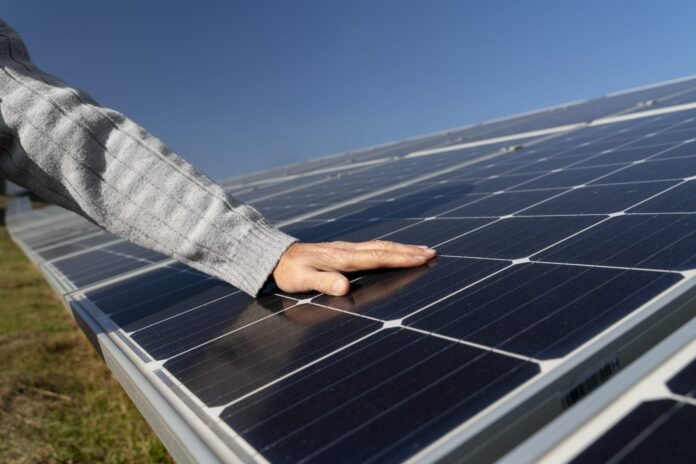As energy costs climb and environmental awareness grows, homeowners are exploring innovative ways to heat their homes sustainably. Among these solutions, solar furnaces stand out as an eco-friendly option that could revolutionize home heating. However, before diving into this investment, it’s essential to consult with a trusted HVAC company. A professional assessment ensures that your home’s heating system is compatible with solar technology and helps you choose the right setup for your needs. For homeowners considering this path, scheduling a furnace installation consultation is an excellent first step.
In this article, we’ll explore how solar furnaces for homes work, their benefits, and whether they could replace conventional heating systems.

What Are Solar Furnaces?
A solar furnace is a heating system that uses energy from the sun to generate heat. Unlike traditional furnaces powered by gas or electricity, solar-powered furnaces harness renewable solar energy, making them cost-efficient and environmentally friendly.
There are two primary types of solar furnaces:
- Solar Thermal Furnaces: These systems use mirrors or lenses to focus sunlight onto a small area, producing high temperatures. They are mainly used for industrial applications but are increasingly being adapted for home heating.
- Solar Air Furnaces: Designed for residential use, solar air furnaces heat air directly, which is then circulated into the home. These systems are ideal for sunny climates and can supplement or replace traditional heating systems. For installation guidance, it’s best to discuss options with an HVAC professional who understands local climate conditions and building requirements.
How Does a Solar Furnace Work?
The operation of a solar furnace begins with collecting sunlight using panels or collectors, typically installed on a roof or wall. Here’s how the process unfolds:
- Solar Collection: Specialized collectors absorb sunlight and convert it into heat. In a solar air furnace, the collector heats air directly.
- Heat Circulation: A blower or fan distributes the heated air throughout the house via ducts.
- Optional Thermal Storage: Some systems include thermal storage to save excess heat for later use, ensuring warmth even at night or on cloudy days.
The key to a successful installation is compatibility with your existing HVAC system. An expert in furnace maintenance and upgrades can evaluate whether your home is ready for solar integration or if additional adjustments are needed.
Why Consider a Solar Furnace?
Switching to a solar-powered furnace offers several advantages, especially for eco-conscious homeowners:
- Reduced Utility Bills: Solar heating relies on free energy from the sun, drastically cutting monthly energy costs.
- Eco-Friendly Heating: Solar furnaces eliminate greenhouse gas emissions, reducing your home’s carbon footprint.
- Energy Independence: With a solar system, you’re less dependent on fluctuating energy prices and grid reliability.
- Low Maintenance: Compared to traditional furnaces, solar furnaces often have fewer moving parts, reducing maintenance needs over time.
However, the effectiveness of a solar furnace largely depends on proper installation. Working with a professional HVAC service ensures that your system is optimized for efficiency and longevity.
Challenges to Keep in Mind
While the benefits of solar furnaces are impressive, there are important considerations to address:
- Weather Dependency: Solar systems require sunlight, which can be limited during winter or in cloudy climates. To overcome this, many homeowners pair a solar furnace with a traditional system for backup. An HVAC consultation can help determine the ideal hybrid setup.
- Initial Investment: Installing a solar furnace involves significant upfront costs, but long-term energy savings and available tax incentives often offset this expense.
- Space Requirements: Solar collectors require adequate outdoor space, which may be a limiting factor for some homes.
- System Compatibility: Retrofitting a solar furnace into an existing HVAC system may require additional modifications, emphasizing the need for professional advice.

The Role of HVAC Professionals in Solar Furnace Installation
Integrating a solar air furnace into your home’s heating system is not a one-size-fits-all process. Factors like home size, location, and insulation levels play a crucial role in determining the right setup. An experienced HVAC company can assess these factors and recommend the best solutions for your home. Whether you’re exploring a full solar heating system or a hybrid approach, consulting a professional ensures a seamless and efficient installation.
Are Solar Furnaces the Future of Heating?
The growing popularity of solar furnaces for homes reflects a broader shift toward sustainable energy solutions. As technology advances, these systems are becoming more efficient and accessible. Solar air furnaces, in particular, offer a practical way to harness solar energy for heating, especially in regions with abundant sunlight.
What makes solar heating exciting is its potential for future innovations. Smart thermostats, AI-driven optimization, and improved storage technologies are set to enhance the performance of solar-powered furnaces, making them an even more attractive option.
Is a Solar Furnace Right for You?
Choosing a solar furnace depends on your location, energy goals, and budget. Homes in sunny regions stand to benefit the most, but even in areas with less sunlight, a solar system can reduce energy costs when paired with a traditional furnace.
To make an informed decision, it’s essential to work with a reputable HVAC provider. They can evaluate your home’s suitability for solar heating, discuss financing options, and guide you through the installation process. Scheduling a furnace service consultation is the first step toward exploring this exciting technology.
Embracing Solar Power for Home Heating
As more homeowners prioritize sustainability and energy savings, solar furnaces offer an innovative solution that aligns with these goals. While the technology may not replace traditional systems entirely, it can significantly reduce energy consumption and environmental impact.
By partnering with an experienced HVAC company, you can unlock the full potential of solar heating, ensuring that your system is tailored to your home’s needs. With the right guidance, a solar-powered furnace can provide a cleaner, greener, and more cost-effective way to stay warm year-round.


















